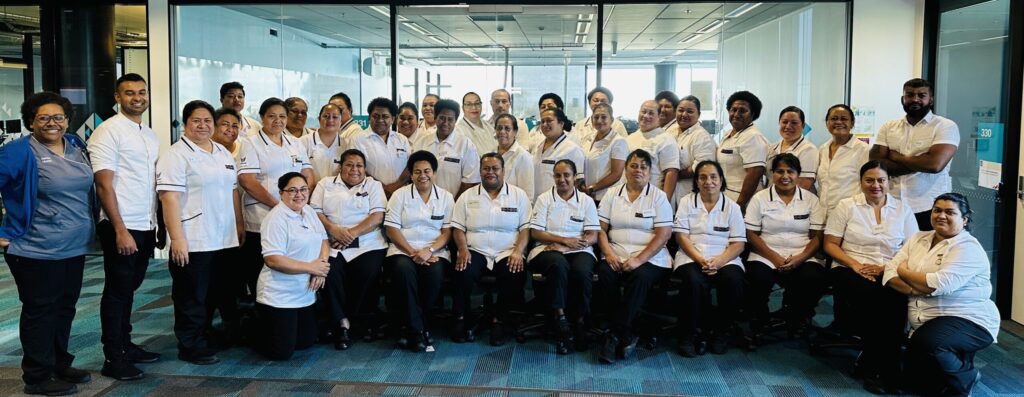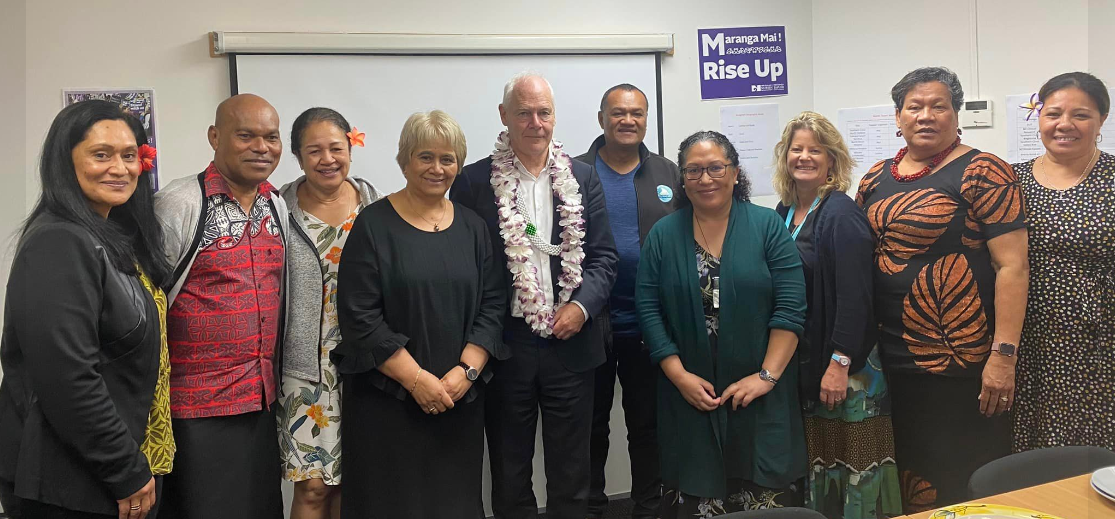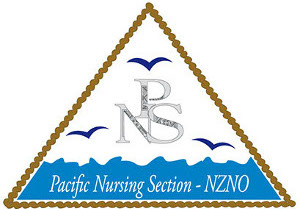 In Aotearoa right now, we need more Pacific nurses. With all their languages and inbuilt cultural competency, they can be really effective in lifting health outcomes for our Pacific communities here.
In Aotearoa right now, we need more Pacific nurses. With all their languages and inbuilt cultural competency, they can be really effective in lifting health outcomes for our Pacific communities here.
But registered nurses (RNs)who identify as Pacific make up just four per cent of the New Zealand workforce compared to a Pacific population of about nine per cent.
One of the things we want to do is support our Pacific nursing students and make sure they get mentoring – and jobs when they graduate. We work closely with the Aniva future Pacific leaders programme, which provides study grants and networking events as well as mentoring – which we want to help with. Aniva is a network of Pacific health professionals.
The English tests are not very Pacific-friendly, coming from a very Western world view which can be a challenge for nurses from Pacific cultures.
We are talking about partnering with them to support their Pacific student “exam bootcamp” mentoring programme, which gives students extra help preparing for their nursing exams. We are also keen to be more involved in their networking events where students can meet senior Pacific nurses to help connect them to mentors and potential jobs.
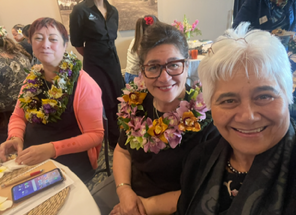
And at the other end, is how we can support and mentor new Pacific nurses after they graduate.
Again, we are working closely with Aniva on its post-graduate workforce and leadership programmes which provide financial support as well as residential teaching workshops for Pacific health workers. We help provide experienced Pacific nurses as mentors as well as cultural support to the students and graduates.
Bridging nursing programmes
We also want to get more bridging programmes up and running to help more Pacific-trained nurses work in New Zealand. Whitireia Polytechnic ran one in 2023 and 2024. They were successful and demand was high. A small number needed some extra mentoring and to resit the state final exam, but eventually all the students passed and have registered as nurses here – now they just have to find jobs!
Most of them were supported by Te Whatu Ora Pacific health scholarships which are available to students of Pacific-descent studying medical, health or disability-related services in New Zealand. These offer up to $5000 for nursing or midwifery students.
But when they try to make the leap into nursing, it can be daunting and many feel like they’re on their own and give up.
This year, we are working with Whitireia — whose head of Pacific nursing, Tania Mullane, is a great supporter — the Nursing Council, Manatū Hauora/Ministry of Health and Te Whatu Ora on how we can get more funding for bridging courses like these.
Registering to work in Aotearoa
There are hundreds of Pacific-trained nurses working as health-care assistants (HCA) in aged care in Aotearoa.
But when they try to make the leap into nursing, it can be daunting and many feel like they’re on their own and give up.
So we want to engage with them early to steer them in the right direction – such as coaching them for their compulsory online English test.
Sometimes these tests – whether it’s the English language testing system (IELTS) or occupational English test (OET) — can be a tough barrier.
As well as being quite stringent and expensive, they are not very Pacific-friendly, coming from a very Western world view which can be a challenge for nurses from Pacific cultures.
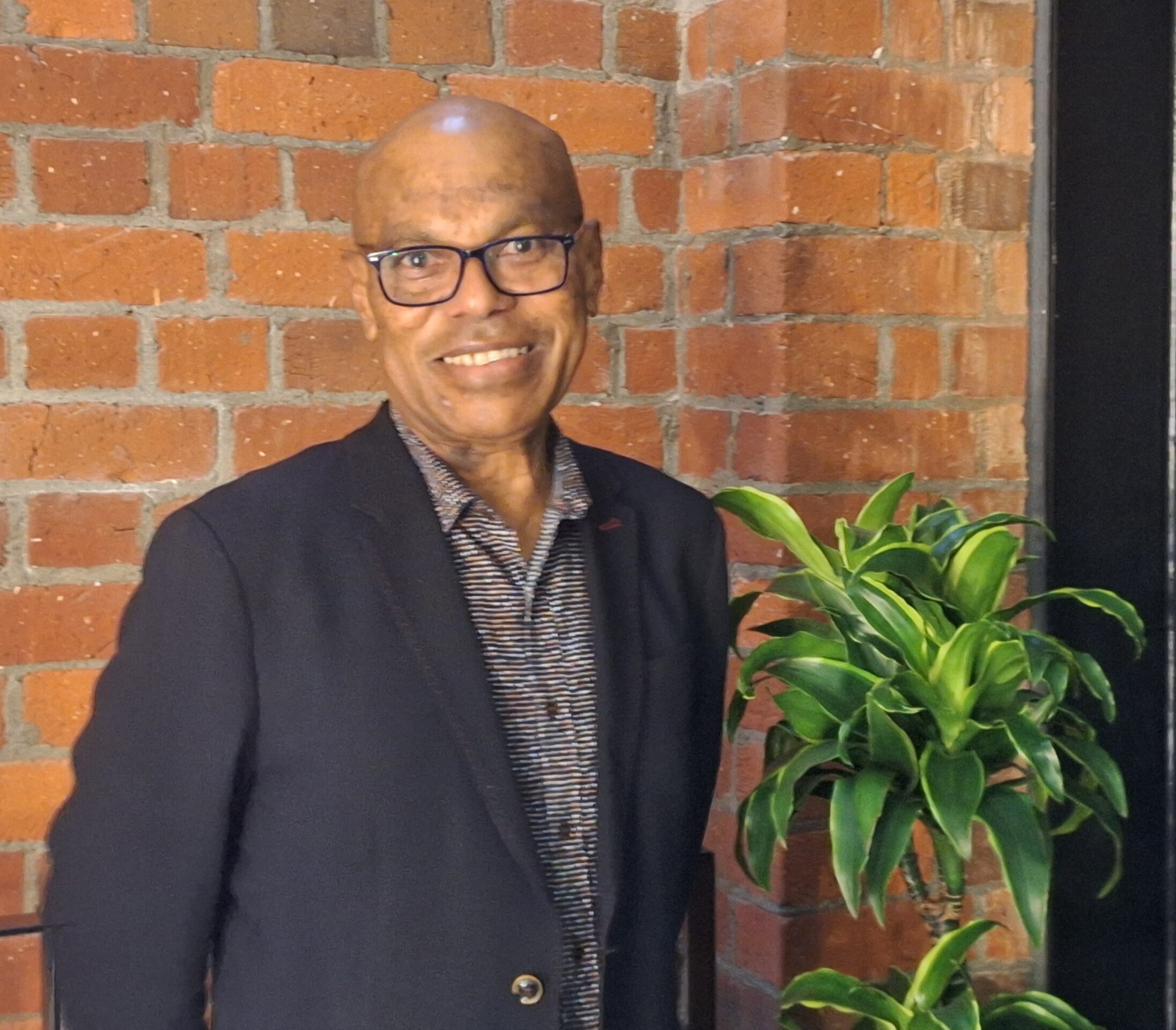
So we are working with the Nursing Council to try and make the process a bit smoother, with some more supports and mentoring, so we can get them into the nursing workforce as soon as possible.
But that’s only if they’re already here in New Zealand. We don’t feel it’s ethical to encourage nurses to leave their Pacific countries, so many of which are already short of nurses.
Growing Pacific nurse practitioners
In 2024, the first Pacific nursing research fono (conference) was held, by Aniva with Te Whatu Ora.
We’d love to make this a regular event every two or three years and will work with Aniva and Te Whatu Ora to try and get this off the ground.
It was at the fono we realised seven Pacific nurses had graduated with PhDs in 2024. This is fantastic but we would love to see this growth extend into the nurse practitioners (NP) workforce.
No matter how this Government slices and dices its need-versus-ethnic grounds, there is a need.
Currently, there are only about 12 Pacific NPs out of a total of 800 – just 1.5 per cent!
To increase this, we need to work with tertiary providers, the Nursing Council and employers to see how we can support more Pacific nurses on their NP journey.
Also, with $34.2 million in new funding announced for more NPs in primary health over the next five years, we are keen to get more of our Pacific nurses into that space.
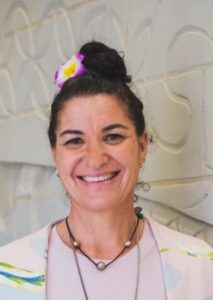
No matter how this Government slices and dices its need-versus-ethnic grounds, there is a need. We Pacific nurses have the lowest number of NPs, so let’s see what we can do!
Ethnic-specific mentoring
We are also growing an ethnic-specific mentoring programme for students, new graduates and post-graduate students. Aniva already does this in schools through its future leaders programme. Our Pacific cultures are different — there are similarities but different aspects too, like languages.
We have already trialled this informally in a few parts of Auckland and hope to do more as they were very successful.
And later this year, in October or November, we will be having our conference on Pacific nursing and health outcomes – watch this space!
But to achieve all these ambitions and boost our much-needed workforce, we need more members in our section. Many NZNO members don’t realise they can join up to three different colleges and sections, so we want to make sure everyone knows that and joins up.
If you’re a Pacific nurse and would like to be involved in supporting our workforce, please get in touch here.
— Ēseta Finau is Pacific nurses section chair and Abel Smith is treasurer.
